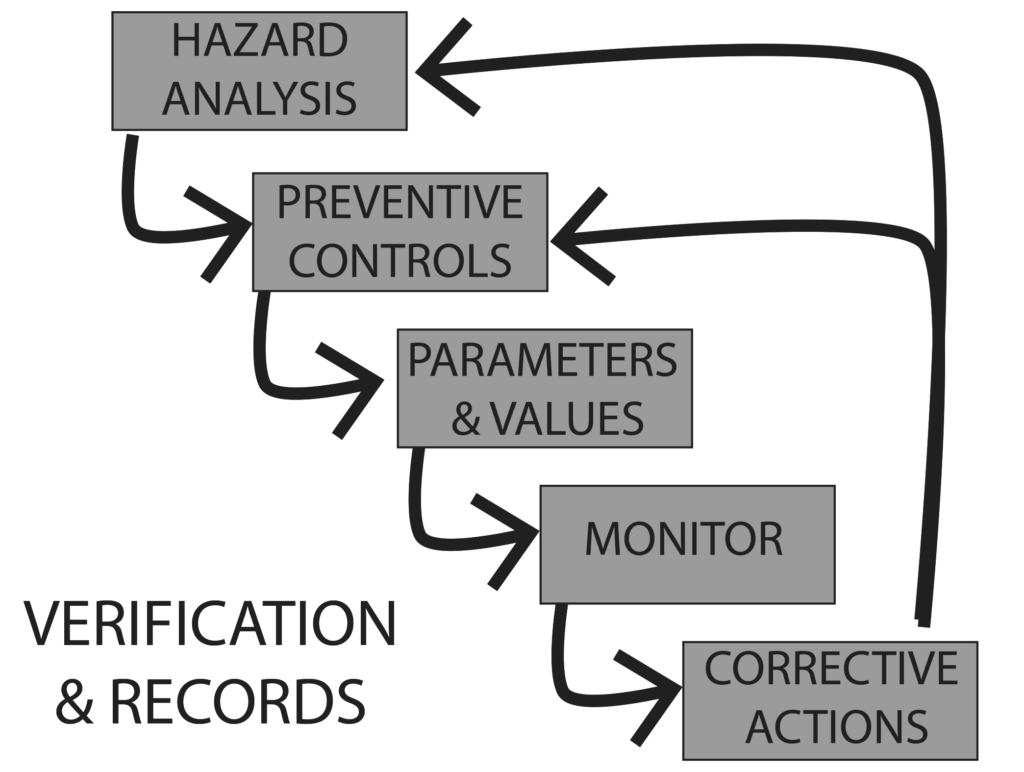
The Hazard Analysis and Critical Control Points (HACCP) process is a well-known international standard program for food safety developed originally for the U.S. space program in the 1960s. It was obviously important that astronauts not have a food- borne illness while in space.
It has since been adapted for use in all types of food. The HACCP approach now consists of seven principles and relies on identifying “critical control points” that will be discussed in detail in this course.
More recently, the United States adopted a new program called Preventive Controls for Human Food that takes HACCP a bit further, implementing standards for what are called “preventive controls.” These include the HACCP critical control points but also incorporate controls for other areas: sanitation, supplier controls, and allergen controls.
This course will incorporate principles from HACCP and Preventive Controls for Human Food. It is necessary to cover both since you may have to meet one or both of their requirements, depending on your customer. These programs together cover the four areas that need controls:
- The manufacturing process
- Sanitation
- Allergens
- Suppliers
The key difference to understand is that HACCP only applies to the first item, the process. HACCP identifies critical control points (CCPs) for the spot where hazards exist and can be controlled in the process.
The Preventive Controls for Food program applies to the process plus the other three areas, and it uses the term “preventive control” for the spot where hazards can be controlled by an action related to the process, sanitation, allergens, or suppliers.
A third set of standards to be aware of are the Global Food Safety Initiative (GFSI) schemes. There are several organizations that have developed criteria to use to become certified under their program. Customers usually request that you get certified in one of these schemes or you can undertake certification on your own. If your company is interested in GFSI certification there are resources online that will help you decide which scheme is best for you. This course will not cover details for GFSI programs since they require much more than regulations for food safety.

